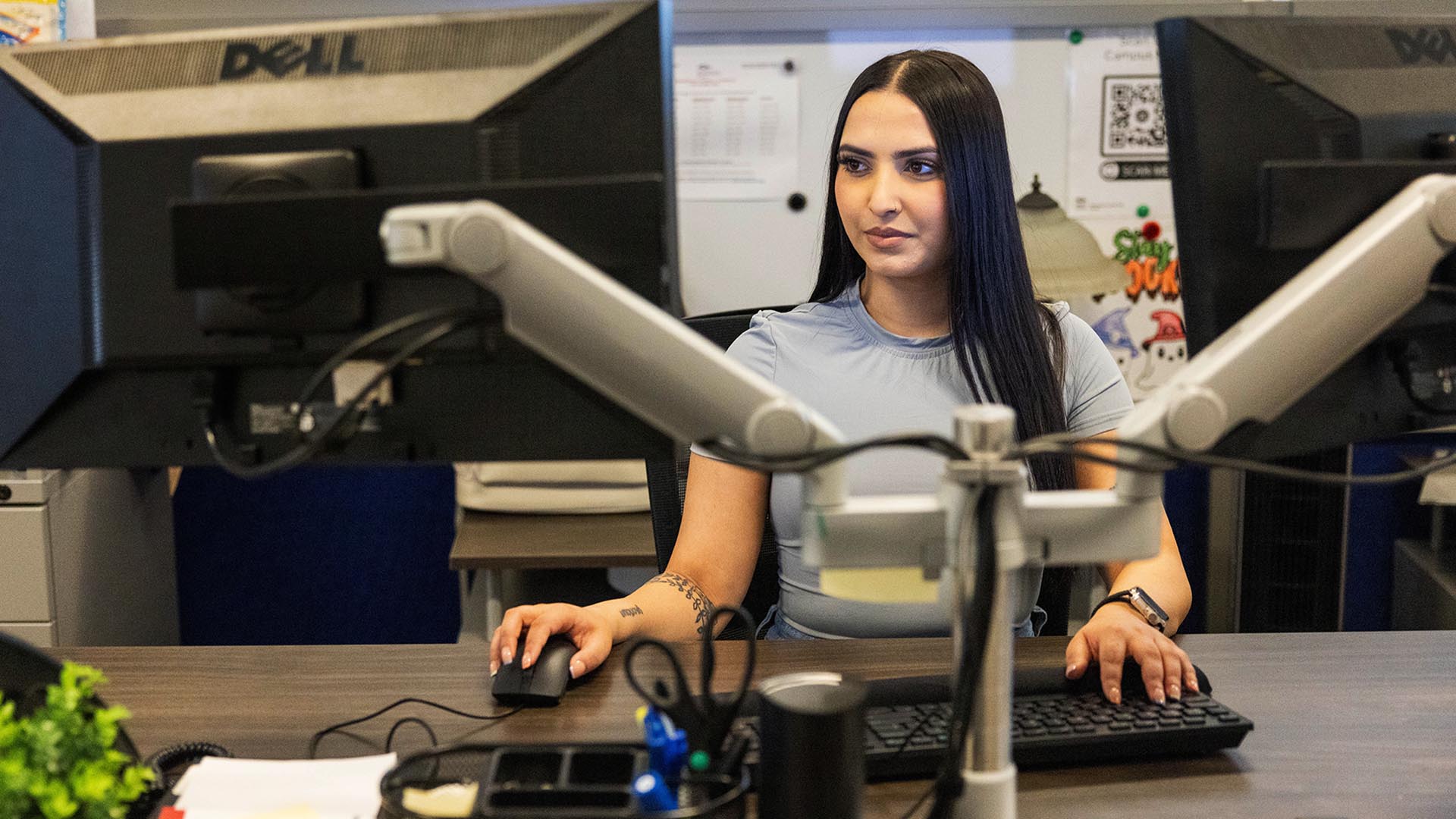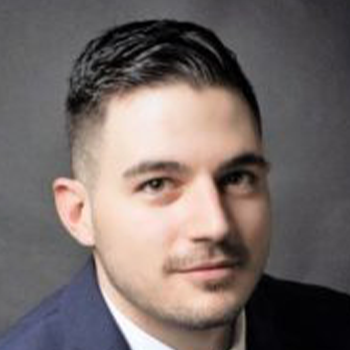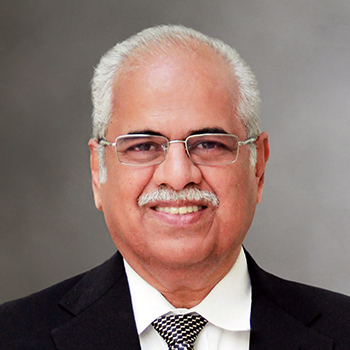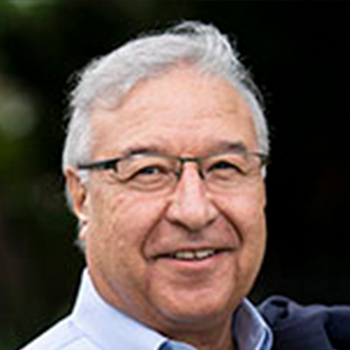Making our mark on the Mile High
Meet three alums who’ve had an immense impact on Denver.

They came of age in the city. They went to college in the city. Now, they’re changing the city – for the better.
From revitalizing neighborhoods to advocating for the next generation of residents, these Mile High catalysts affect change in Denver every day.

Paving the road home
Veronica Barela is tough. She’s determined. And as a savvy community builder, she gets things done.
In other words, she’s a Roadrunner.
Understanding Veronica Barela’s accomplishments as CEO and president of the NEWSED community-development corporation requires knowing her story of persistence and empowerment.
Raised in Denver’s North Lincoln Park housing projects, she grew up in the community she’s helped build for more than four decades. And though there were hardships, she credits the experience for forging her vision of leadership.
“Growing up poor, I learned to appreciate what I did have and not to waste time on things that don’t matter,” Barela says. “It made me really care about helping people get out of poverty.”
Barela’s civic engagement is a testament to the power of uniting a neighborhood. As a west Denver activist for decades, she recalls how NEWSED’s entry into housing issues kicked off with advocating for displaced populations, starting in the 1980s. With gentrification related to soaring home prices, that advocacy continues to this day.
“The homeownership rate then was 16 percent – that was unacceptable,” Barela says. “We had to do something to bring middle income back into the community.”
That was the impetus for a massive revitalization effort: Grants paved the way for streetscaping, tree planting and painting that helped spur the redevelopment of Santa Fe Drive.
Today, the area is a magnet for arts and culture in the Rocky Mountain region. The Art District on Santa Fe’s monthly First Friday Art Walk regularly draws upward of 15,000 attendees. And NEWSED’s annual Cinco de Mayo Festival – which just celebrated its 30th year – kicks off the city’s festival season.
“Art has been extremely important in building community,” Barela says. “[It] gives us something to culturally hang our hats on – and we want to share that with the public.”
Building community takes a strong foundation – and for Barela, it meant finding an educational fit locally.
Though her first foray into higher education was cut short after racial intimidation at another institution, she decided to enroll as a Roadrunner, being familiar with the school from which her brother and sister graduated.
“There wasn’t a single professor I didn’t like – and if we encountered racism, there were people around to help process and do something about it,” Barela says. “The difference was like night and day.”
Another key difference: the school’s reputation for creating workforce-ready students. Barela says employers hire MSU Denver graduates because “we’re working people – we have our feet on the ground.”
Having feet on the ground led to NEWSED’s enduring impact over the decades. Empowering a community takes education, effort and hard work.
For Barela, though, it’s more than that – it’s paving a road home.
“I loved MSU Denver; it’s the best training I could have had,” she says. “I’m so proud to be a Roadrunner.”
They came of age in the city. They went to college in the city. Now, they’re changing the city – for the better.
From revitalizing neighborhoods to advocating for the next generation of residents, these Mile High catalysts affect change in Denver every day.

Out of the gate, running
Nickolas Dawkins has built a legacy of school turnarounds – and he’s not looking back.
As principal of Denver’s Manual High School, Nickolas Dawkins understands what it takes to turn things around.
The 2003 English degree graduate has a track record of transformation: At Dr. Martin Luther King Jr. Early College, he contributed to the achievement of a 100 percent graduation rate. As principal at Hamilton Middle School, he helped realize some of the highest achievement growth in the state.
And the key to his success? An equity-minded approach to ensure that every student receives a great education.
“When I’ve come into places, students are often falling behind,” he says. “I can understand that; for a long time, I was there myself.”
Having lost his family as a teenager, Dawkins knows firsthand how vital it is to have the right support at the right time. As a Roadrunner, he credited faculty in education and English for being instrumental in a journey that’s taken him through graduate school and all the way to study at the University of Oxford.
For Dawkins, however, the foundation is local – the education he got at MSU Denver.
“Through practicums and other real-world connections, we learned to celebrate students for who they are and where they come from,” Dawkins says. “The University gave me a chance to do that; now I try to give back the same opportunities.”
One of the components in Dawkins’ approach is reframing the perception of problem behavior as a strength-based opportunity to build on. By adopting an appreciative mindset, students have foundational confidence that becomes self fulfilling.
It matters to Dawkins because, as he put it, schools can and should be judged by how they treat those with the most potential impact from high-quality instruction.
To do that, he empowers teachers to do what they do best – teach.
“My job is to help our great teachers improve student learning by removing obstacles for them to do their jobs,” he says. “We hire a lot of MSU Denver education graduates to help with that – they have a culturally responsive lens to build resiliency and help students be successful.”
For Dawkins, this understanding came into focus personally at MSU Denver. As an English major with a minor and emphasis in secondary education, he learned the transformative power of setting high expectations with the targeted support to reach them.
“I came from the city; I live in the city. I know these kids,” he says.
“We are the students who were counted out, but we came out of the gate running – and we’ve never looked back.”
Getting young people back on the road
Shawn Cohn turned her criminal-justice degree into a career turning lives around.
As chief probation officer for the Denver Juvenile Probation Department, Shawn Cohn has spent more than 25 years getting young people back on track after setbacks with the legal system. And with more than 500 youths currently on probation, it requires a deft touch to balance individual situations with community safety.
“Folks here are passionate about helping kids turn their lives around,” she says. “We recognize that people make poor choices sometimes, so we work hard to get a rehabilitative plan in place and positively engage families.”
The 1990 graduate knew from early on the kind of work she wanted to do. While attending Lincoln High School, she met a resource officer who piqued her interest in making a difference through law enforcement.
But it wasn’t until she became a Roadrunner that she got a real look into a career that would give her the opportunity to impact lives throughout the Denver community.
“The instructors teaching these courses often had careers in the fields they taught in,” says Cohn, who majored in criminal justice with an emphasis in juvenile delinquency and minored in psychology. “In addition to getting the information from books, I got real-life, hands-on experience.”
Cohn recalls a course on statute that was taught by a practicing district attorney. She also notes the immense value that guest lecturers bring to the classroom by exposing students to different opportunities within criminal justice. Indeed, it was a probation chief who came to one of her courses – along with working at the Excelsior Youth Center residential facility – that helped solidify her professional track into youth corrections.
Now, it’s Cohn’s turn to pay it forward. As a guest presenter at MSU Denver, she extols the virtues of internships and applied volunteerism, which give students an edge in the competitive job market.
Helping young people turn their lives around requires focusing on the individual and the community. For Cohn, insight into both came from her time as a Roadrunner.
“I’m a huge supporter of the criminal-justice program at MSU Denver,” she says. “So many of our probation officers now come from there; they just have a different level of understanding for the system.”







